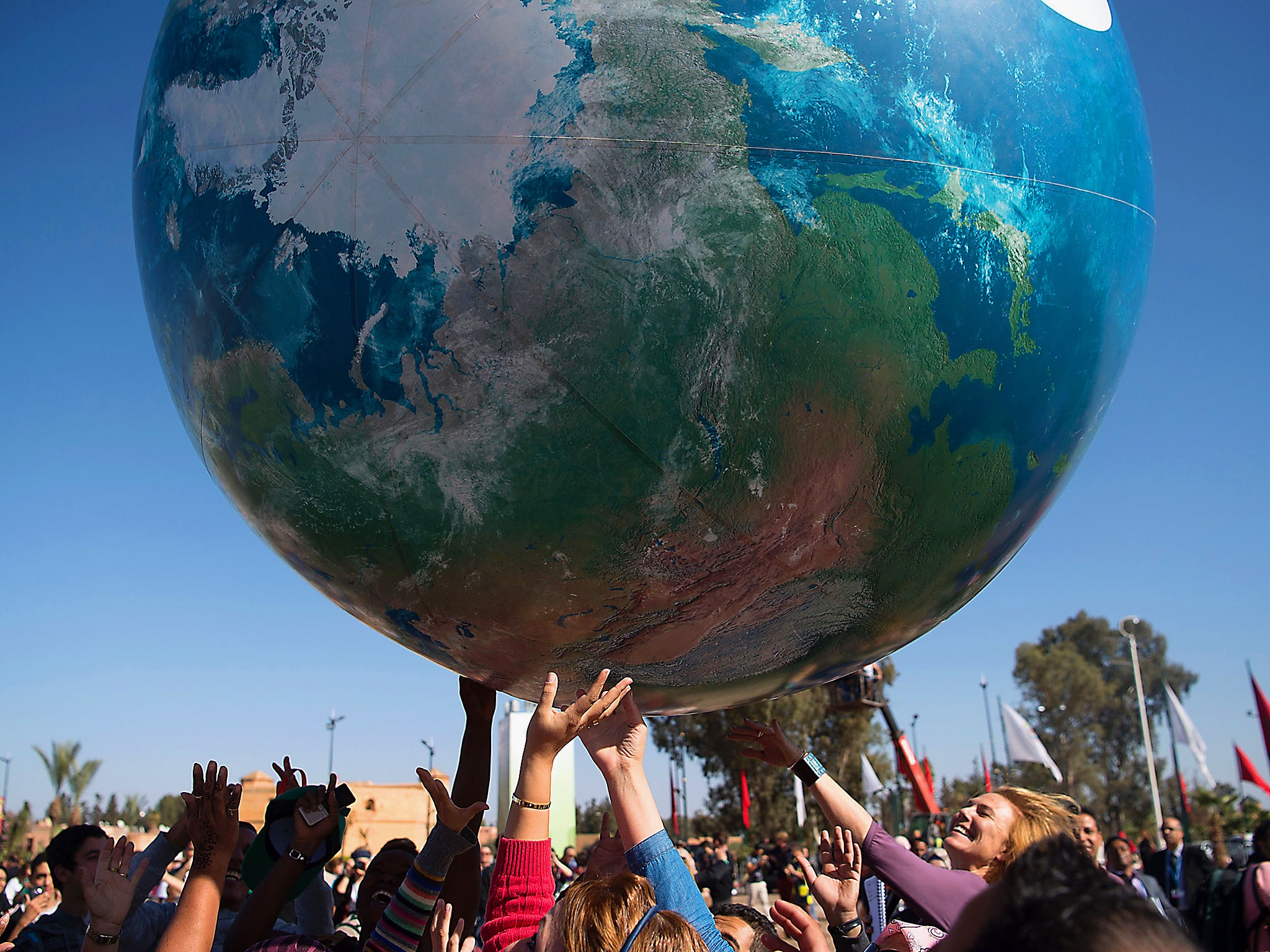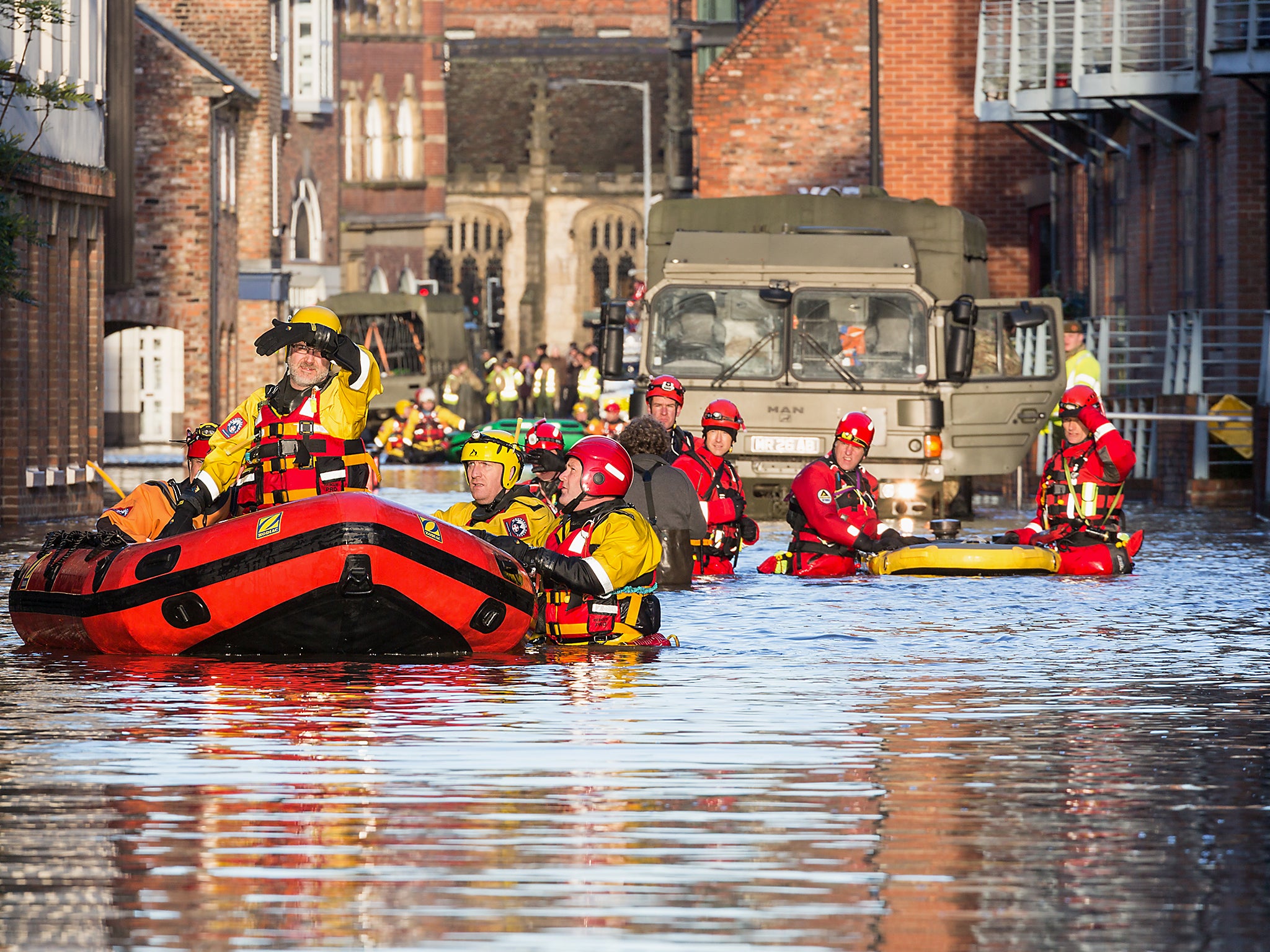After the drunken party, the hangover begins to bite
Ian Johnston is still reeling from Donald Trump's pronouncements on the environment. What will his presidency mean for the world?

If 2016 was the wild drunken party at which the supposed charms of Brexit and Donald Trump worked their magic on just enough people in the UK and US, 2017 is shaping up to be the hangover in which reality begins to bite. And the environment could suffer some of the worst after-effects. Trump, who takes office later this month, has sent mixed messages about climate change, but the overall mood music suggests he will reject the scientific consensus and allow fossil fuels to be burned like there's no tomorrow. Climate scientists have already described his election as a disaster for the world. A booklet called Handling Political Harassment and Legal Intimidation: A Pocket Guide for Scientists is even being distributed at the American Geophysical Union's annual conference, partly because of concerns that the Trump administration will attempt to interfere with science.
Whether these fears are justified will likely become apparent over the next year, possibly from day one of the Trump presidency if he immediately fulfils his pledge to remove the US from the signatories of the Paris Agreement on climate change. The Paris accord has been hailed as a landmark moment in human history and even, according to Barack Obama, what could be “the moment that we finally decided to save our planet”. But the follow-up summit, the supposed “conference of action” held in Morocco in November at which the warm words of Paris would be turned into reality, was something of a damp squib in the eyes of some. Campaigners spoke of their extreme disappointment that the rich world was not doing enough to help poor countries cope with the effects of global warming.
At the Marrakesh summit, held as Trump was elected, many delegates insisted that his apparent climate-change denial – as evidenced by delusional comments that global warming is a hoax perpetrated by China – would not derail the world’s efforts to tackle the problem. But it smacked a bit of professional optimism. “Don’t give up, it’s not hopeless” was the message they wanted to get across. If Washington suddenly drops its leadership role on climate change and champions fossil fuels instead, that would have a massive effect, both directly and as an example for other states to follow. Starting on 20 January, US officials, particularly the US military, which has long recognised the serious risks to world security posed by climate change, must show courage to vigorously challenge Trump’s scepticism and attempt to convince him he is wrong.

It is a battle of wills likely to take place behind closed doors, but which could spill out into the open if he sticks to his guns. In the UK, which like the US has played a leading role in the international efforts to limit global warming, climate scepticism is of a milder brand, with the likes of Lord Lawson and Nicholas Ridley accepting much of the science but insisting it won’t be as bad as the experts predict. The quality of their arguments – such gems as “environmental predictions of doom” simply “always” turn out to be wrong – leaves much to be desired.
But arch-Brexiteers like Jacob Rees-Mogg are already eyeing up the chance to slash environmental regulations after the UK leaves the European Union. Arrayed against them are the UK’s environmental groups who have launched a campaign to make this country the greenest country in the world post-Brexit. John Sauven, executive director of Greenpeace, pointed to the plummeting price of renewables and the pressure on the Government to act to control air pollution from fossil fuels as signs of hope. “While many people have quite fairly seen 2016 as a horror show, especially with the election of Trump, there are reasons to be positive, ” he said. “People are rightly nervous about 2017, but we will make sure our environment is not sacrificed for short-term corporate greed.”
Theresa May’s position is somewhat unclear. Andrea Leadsom, picked by May as Environment Secretary, has said she only became convinced last year that climate change was real. But since becoming a Cabinet minister, she has been repeatedly parroting the mantra that the Government’s ambition is for this generation to be the first to leave the natural world in a better state than they found it. The fuzzy language leaves plenty of wriggle room, but could be a genuine statement of intent. The proof should come over the next few months as the Government lays out its carbon emissions reduction plan, a 25-year plan for the environment and a separate 25-year plan for food and farming.
The Great Repeal Bill – required as part of the Brexit process – should also reveal how much EU environmental legislation is adopted into UK law and how much is ditched. May, an arch-pragmatist at a time when one is most certainly needed, may decide to pay little more than lip service to climate change and the environment while focussing on preventing Brexit from causing the economic collapse of the UK. Whether this threat is real or a phantom should become more apparent after Article 50 is triggered in the spring.

With the UK otherwise pre-occupied and the US in the grip of a climate denier, China’s attitude to climate change will be increasingly important. China came to the realisation that climate change required serious action relatively late. It had good reasons to avoid confronting reality after largely running its rapidly growing economy on coal, but it has since become something of a world leader on renewable energy and announced its ratification of the Paris Agreement at a joint ceremony with the US. Over the next year it should become clear whether Beijing will stick to this path or slide back towards climate science denial and fossil fuels. If that happens, it could be game over for life as we know it on the planet as average global temperatures increase by Armageddon-like levels of 5-7C. A recent study suggested we might already be heading in that direction.
So 2017 is shaping up to be quite a significant year. Unless of course global warming does turn out to be the greatest hoax ever perpetrated on humanity by an evil cabal of virtually every scientist on the planet – all in the name of winning research grants. But if you believe that, you’re probably still drunk.
Join our commenting forum
Join thought-provoking conversations, follow other Independent readers and see their replies
Comments